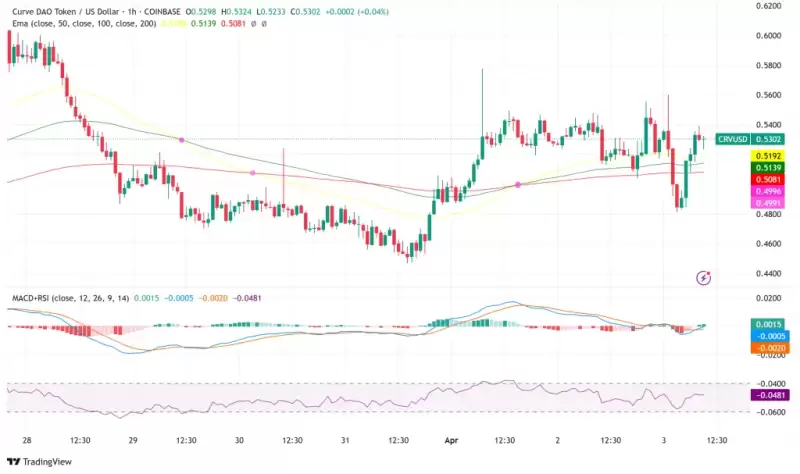 |
|
 |
|
 |
|
 |
|
 |
|
 |
|
 |
|
 |
|
 |
|
 |
|
 |
|
 |
|
 |
|
 |
|
 |
|
Cryptocurrency News Articles
YesNoError: Can AI Review Scientific Papers and Drive the DeSci Sector's On-Chain Bull Market?
Jan 03, 2025 at 06:08 pm
Tomorrow, the long-awaited $BIO will be officially launched. As a DeSci sector project supported by Binance, the market is speculating whether the launch of $BIO

Tomorrow will see the long-awaited launch of $BIO. As a DeSci sector project supported by Binance, the market is speculating whether the launch of $BIO will drive the DeSci sector's on-chain bull market and take away some of the liquidity of the AI sector.
But are AI and Decsi necessarily in competition? No. YesNoError, a Solana on-chain project that has been widely discussed recently, has taken a path of integrating DeSci with AI, using AI technology to review and discover errors in scientific research papers.
Its token $YNE quickly reached a market value of 60 million US dollars on the day of its launch on December 20, and was subsequently repeatedly promoted by Andrew Kang (hereinafter referred to as AK), a well-known Twitter KOL. Its current market value is around 50 million US dollars.
Is it really necessary for AI to review scientific papers?
If you don’t understand the usefulness of YesNoError, here’s an illustrative tweet from Ben Parr, a member of the YesNoError team, that illustrates the need to review misinformation in scientific papers:
In October 2024, a research paper claimed that black plastic kitchenware contained toxins, and the news quickly spread in the media. The Atlantic Monthly even published an article titled "Throw away your black plastic kitchenware", causing public panic. Even Ben Parr himself began to clean up his kitchenware. However, Joe Schwartz, director of the Office of Science and Society at McGill University, discovered a major mathematical error in the study - a simple multiplication error caused the reported toxicity level to be 10 times higher than the actual level. This case shows that even seemingly authoritative research can have major errors, and these errors often have a substantial impact on the lives of ordinary people.
If AI technology is used to review research papers, these low-level errors in numerical calculations can be avoided to the greatest extent. YesNoError was born based on this demand.
YesNoError was founded by Matt Schlicht and uses OpenAI’s o1 model as its technical foundation. The project works very directly: the team uses AI to review research papers and then publicly publishes the issues they find on their website yesnoerror.com and official Twitter.
This transparent operation allows the scientific community and the public to be informed of possible problems in important research in a timely manner. Although the project has only just started, it has already achieved some significant results and discovered errors in several studies.
The token $YNE is also given practical use cases. Holders can spend $YNE to use YesNoError AI to give priority review to their papers.
So far, YesNoError AI has reviewed 2,219 papers and has indeed found errors in quite a few papers.
Approval or doubt, some voices in the market
AK is optimistic and posted a lot of praise
On the day when the $YNE token was launched, AK, who has always been optimistic about DeSci, expressed his appreciation for the YesNoError project.
AK said, "The core value of YesNoError lies in the real implementation of cryptocurrency x AI x DeSci."
YesNoError takes advantage of the characteristics of the cryptocurrency ecosystem. In this special environment, capital does not need a return on investment in the traditional sense. As long as you can attract enough attention, you can get sufficient financial support. (That is, the attention economy, if someone pays attention, someone will buy the token.)
At the same time, YesNoError has also found a good application direction for cryptocurrencies. In the right scenario, tokens are no longer pure air, but can actually support public products that are difficult to maintain with traditional business models.
Perhaps because he is really optimistic about it (or he holds a lot of positions?), on December 31, AK published another article to introduce and praise the necessity and practicality of YesNoError from a data perspective.
AK said that YesNoError has the ability to review errors in more than 90 million papers in the global scientific literature library, which can be completed in just a few weeks or months. If converted to manual review, it would take tens of thousands of years. Even if a team of 5,000 PhDs is formed, it will take nearly ten years (and it will not be able to keep up with the speed of new papers being published during this decade), and it is conservatively estimated to cost $5.4 billion.
The optimized AI model only costs about $30 million ($0.3 per paper) to complete a more accurate and standardized review work - the cost is less than 1% of the manual method.
If it is in the traditional scientific field, raising $30 million is also a big project, but it is
Disclaimer:info@kdj.com
The information provided is not trading advice. kdj.com does not assume any responsibility for any investments made based on the information provided in this article. Cryptocurrencies are highly volatile and it is highly recommended that you invest with caution after thorough research!
If you believe that the content used on this website infringes your copyright, please contact us immediately (info@kdj.com) and we will delete it promptly.
-

-

- Bitcoin (BTC) ETF Inflows Have Surged Again as Investors Ignore Trump's Reciprocal Tariffs
- Apr 03, 2025 at 02:45 pm
- Inflows into spot Bitcoin ETFs have surged once again as investors chose to look past the Trump reciprocal tariffs. The net inflows across all US ETFs for Bitcoin stood at $220 million
-

-

-

-

-

- How the 1995-S Kennedy Half Dollar Could Be Worth Over $6,000
- Apr 03, 2025 at 02:30 pm
- The 1995-S Kennedy Half Dollar might look like just another coin in your collection, but don't be too quick to dismiss it. This particular coin, especially the silver proof version, has gained significant attention in recent years.
-

-

- Bitcoin (BTC) price falls four per cent after Donald Trump imposes tariffs on trading partners worldwide
- Apr 03, 2025 at 02:25 pm
- Bitcoin as well as other major cryptocurrencies fell after US President Donald Trump imposed tariffs on trading partners worldwide, which triggered a slump in risky assets.



























































